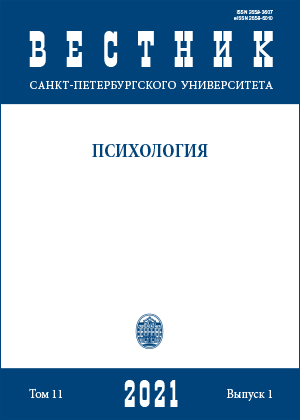Features of the value-semantic sphere of search and rescue volunteers
DOI:
https://doi.org/10.21638/spbu16.2021.107Abstract
Studying the values and meanings that volunteers embody in their activities complements the description of volunteering with the participants’ subjective ideas. This makes it possible to increase the effectiveness of programs for attracting, training, and supporting volunteers. This article describes the results of a study of the value-semantic sphere of the search and rescue volunteers in comparison with professional rescuers. To assess the sustainability of the realization of personal values in volunteering, part of the study was conducted during the high-risk COVID-19 pandemic. 100 people participated in the research: 74 volunteers and 26 professional rescuers. Schwartz’s value questionnaire and Alfried Langle’s existence scale, as well as two questionnaires by the authors and interviews were used. The study revealed differences in the value hierarchy of volunteers and rescuers in terms of reputation values, interpersonal conformity and humility. The leading values for volunteers are independence of thought and action. The main reasons for volunteer’s actions are the desire to help, communication, emotional involvement in activities, and usefulness to society. Overall, there were insignificant changes in volunteering activity during the COVID-19 pandemic, but the value of maintaining the volunteer group’s activities gained additional meaning for volunteers.
Keywords:
volunteer, volunteering, value-semantic sphere, value hierarchy
Downloads
References
References
Downloads
Published
How to Cite
Issue
Section
License
Articles of "Vestnik of Saint Petersburg University. Psychology" are open access distributed under the terms of the License Agreement with Saint Petersburg State University, which permits to the authors unrestricted distribution and self-archiving free of charge.




